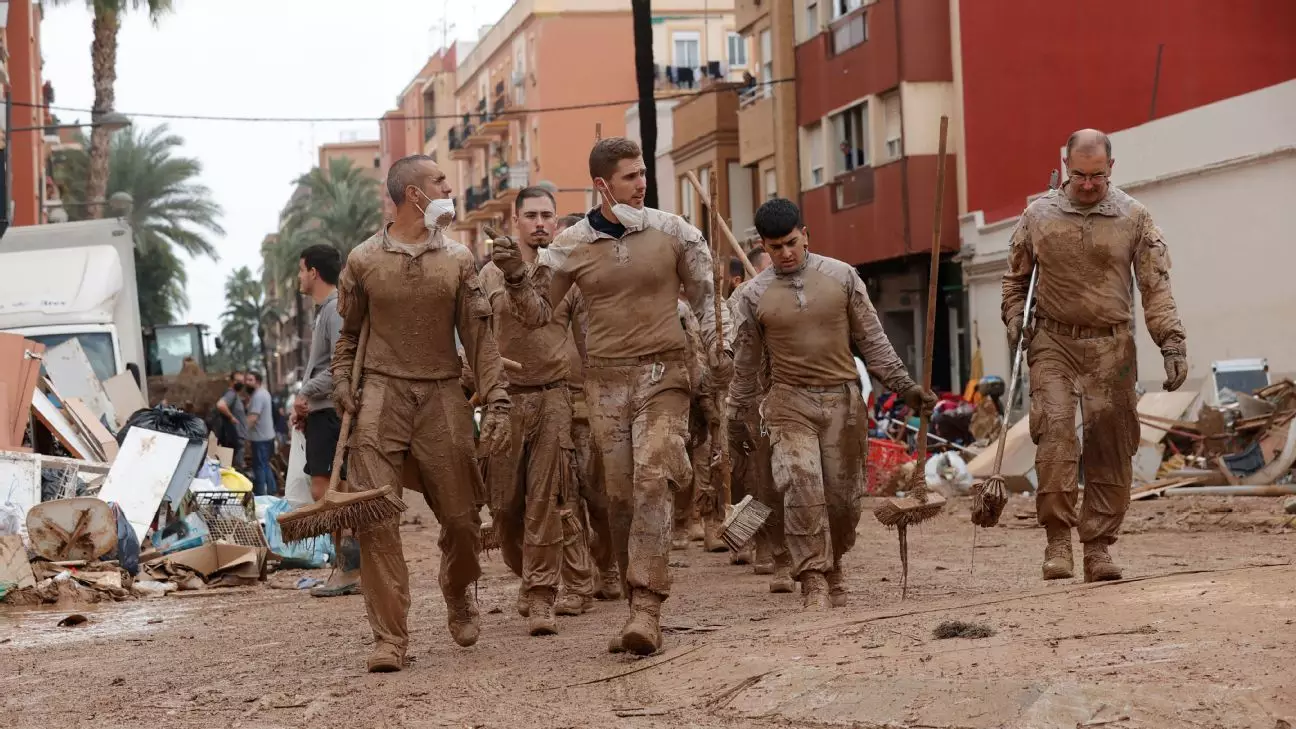The devastating impact of natural disasters on communities can lead to significant disruptions, and the recent deadly flooding in Valencia serves as a poignant example. Following torrential rains that swept through the region on October 29, which left at least 217 people dead, the initial Copa del Rey matches scheduled for this time have faced multiple delays. The repercussions of such disasters extend beyond the human toll, deeply affecting local events, including sporting fixtures that are integral to community cohesion.
In light of the continuing recovery efforts in Valencia, the Spanish Football Federation (RFEF) was compelled to reschedule several Copa del Rey matches for the second time. Originally slated for last week, these first-round matches – including Valencia’s clash at Parla and Levante’s game at Pontevedra – were postponed due to the unfolding crisis. The rescheduled dates have now pushed the matches further into the month, reflecting the ongoing challenges that emergency services and military personnel face as they aid communities in recovery and reconstruction.
Valencia’s upcoming matches, now set for November 26, have become a symbol of resilience amidst adversity. The fixtures involving Ejea against Hércules on November 14 and Levante facing Pontevedra on November 19 also highlight the intense effort required not just to resume normalcy but to foster a sense of community spirit that is often encapsulated in football.
The postponement of these matches does not solely impact the teams involved but resonates with fans and the broader community that rallies around these clubs. Many players and coaches from other teams, including Real Madrid’s Carlo Ancelotti, have voiced support for greater delays in football activities across Spain, advocating for deference to the tragedy affecting the region. Their calls underscore the powerful connection between sports and community well-being, illustrating how shared experiences of joy or grief bind people together.
Furthermore, the abrupt end to the festivities that normally accompany these matches highlights a sobering reality where the passion for football takes a backseat to healing and recovery. The aftermath of such disasters reveals the necessity for sporting bodies to reflect on priorities in times of crisis, balancing the love for the game with the urgent need for compassion and support.
As the days progress and recovery efforts move forward, there lies an optimistic hope that life in Valencia will gradually return to its rhythm, with football playing a pivotal role in this healing process. Matches such as those involving Valencia and Levante will not just be competitions but rather occasions for the community to unite in remembrance and resilience. The journey ahead will undoubtedly involve challenges, but with each match played, there is a collective step towards rebuilding not just sports fixtures but the very fabric of the community itself.
